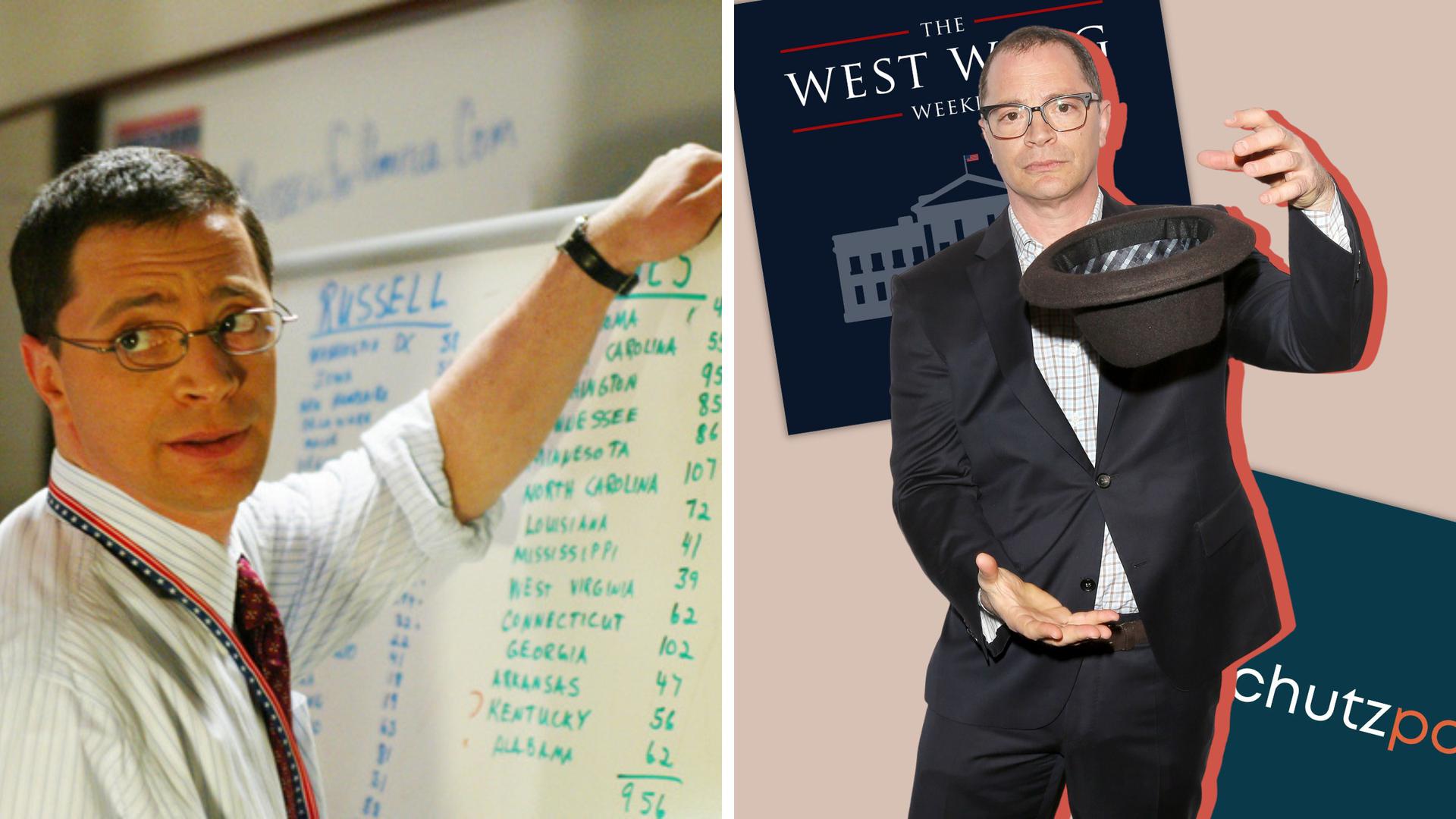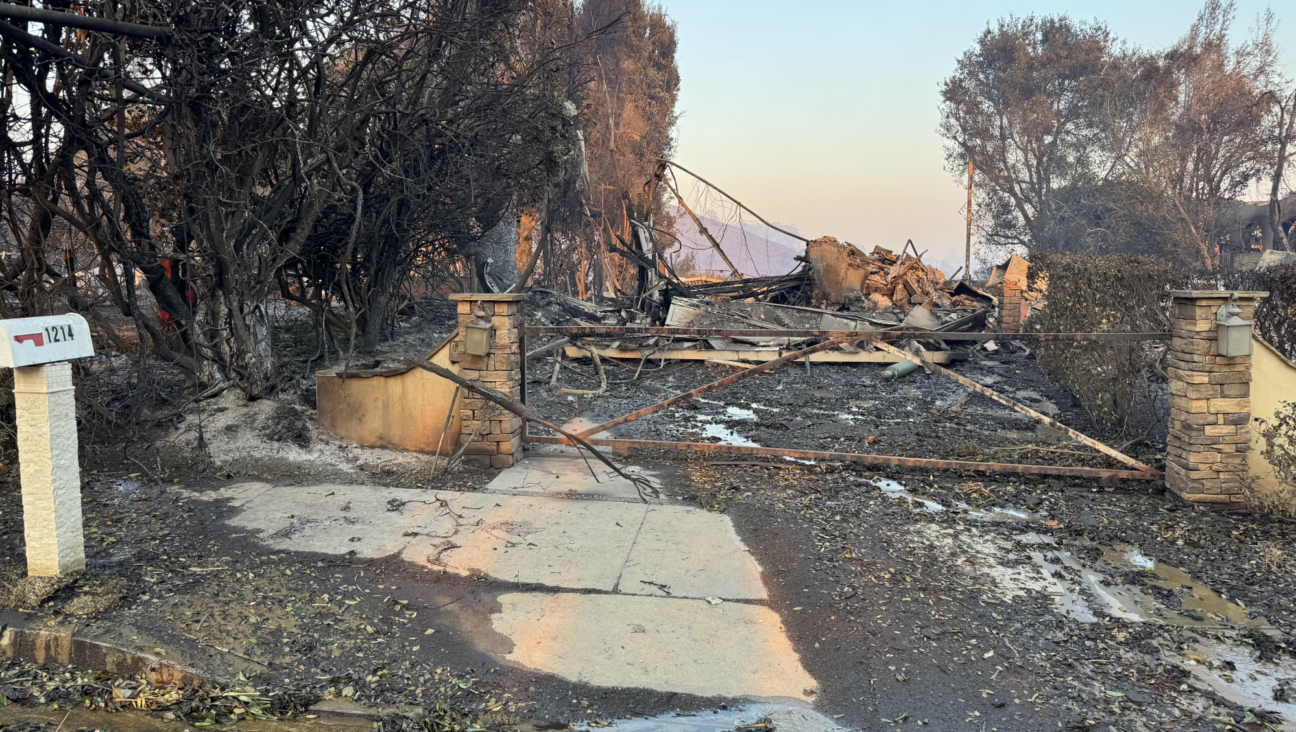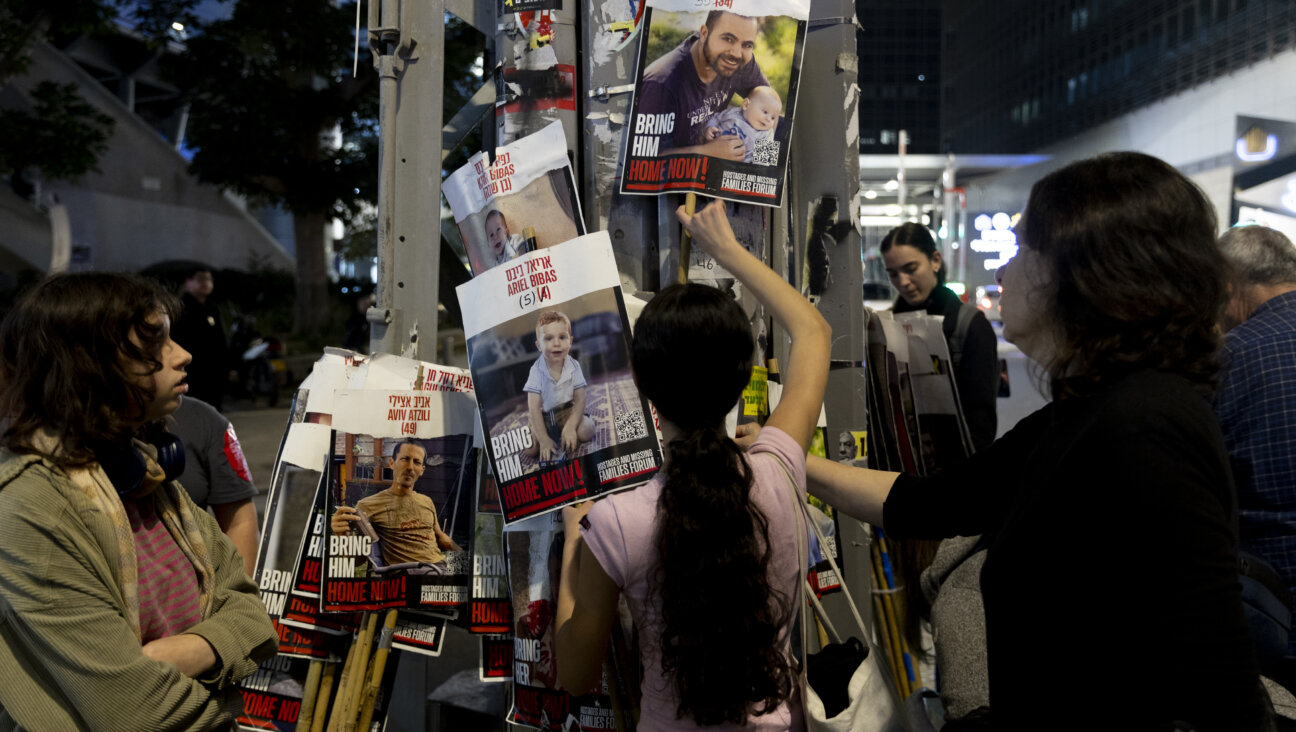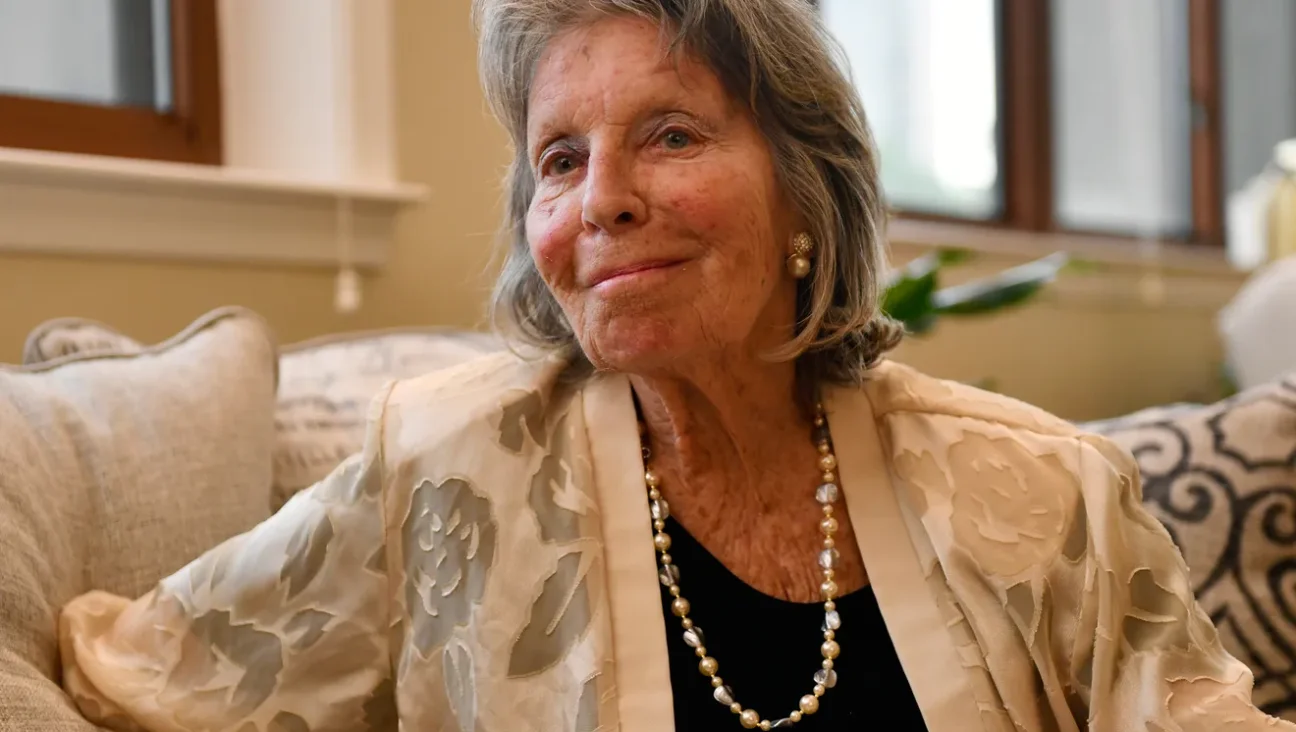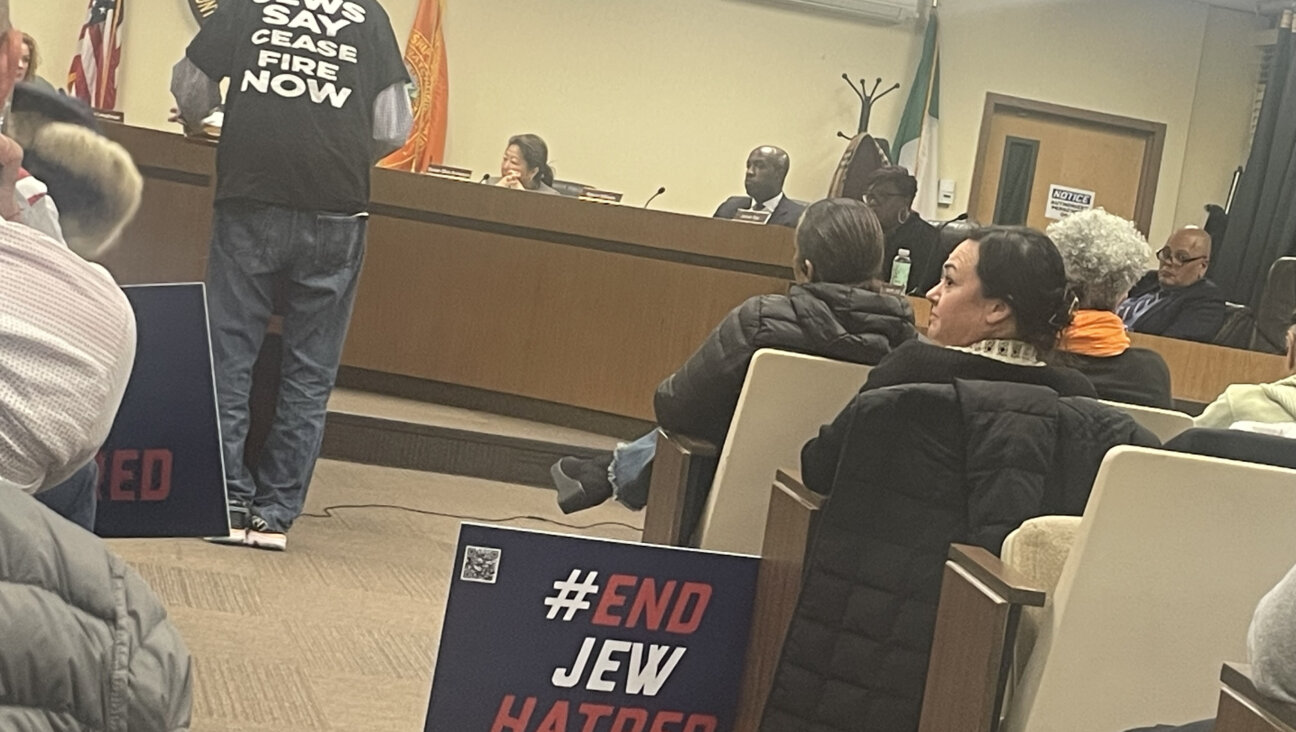I wanted to chat with Malina because he is by far the most Jewishly engaged person on The West Wing. He grew up going to yeshiva, has described Judaism as the “key element” in his identity, hosts the hit podcast Chutzpod! and has been to Israel several times, including with Encounter, a group that takes Jews to the occupied West Bank to meet with Palestinians.
We started with the West Wing Mideast arc and ended talking about a lot of other things, including the new role he is growing a beard for but is not yet allowed to talk about in public. He joked that this is the “substantive Jewish theater phase” of his career, and explained how much he loved being in Nathan Englander’s new and very Jewish play What We Talk About When We Talk About Anne Frank last summer.
Malina’s character on The West Wing, is decidedly not Jewish, though nebbishy in the extreme. He is also the most skeptical voice in these peace-talk scenes, taking the hardest of lines about Israeli security and Palestinian terror, saying the president has “no viable alternative” but to “bomb Palestinians,” and that there is no deal possible on the return of Palestinian refugees to Israel.
“I hear there’s room in Montana — they can rent a cabin and try to secede from the Union,” the character cracks. When Toby talks of convincing the Palestinian leader to accept “something less” than sovereignty over the Arab sections of Jerusalem, Will quips: “How about a floral arrangement? Best wishes for the 93rd intifada.”
And when Kate challenges Will, saying, “So now all Palestinians are terrorists?” he responds, “If the kaffiyeh fits …”
“Cynical and pretty one-sided, and one could argue even racist,” Malina said to describe Will’s positions. “I couldn’t tell if that was seen as some concession to me, or how they imagined my positions to be. I would be horrified or mortified to think I would ever say anything that approaches that.”
Of course he was acting. Malina said he did not help shape the Middle East storyline or nitpick the script, despite his deep feelings about the issue; that’s just not how he works. But he remembered having “uncomfortable” and “unpleasant” conversations with colleagues between scenes, in which he was often put on the spot to defend or explain some Israeli action because he belongs to a synagogue and prioritizes Shabbat dinner.
“I consider myself pretty lefty, and they were super lefty,” he recalled. “I don’t mind getting into the mess of it, and we all respect each other at the end of the day, but we had real deep conversations about Israel and the Palestinians and about the occupation and about settlements.”
He remembered a discussion in which someone made the case that the 9/11 attacks were not an act of terror but a political act, an idea he rejected outright. “What about the Irgun?” he was asked. “What about the Stern Gang? What about the bombing of the King David Hotel?”
“I said, ‘Oh, that’s also terrorism — I don’t know who you think I am or what you think I believe,’” Malina continued. “I got backed into being the pro-Israel guy. Particularly the Jews, the liberal Jews behind the scenes and in the cast, had a hard time finding space for the Israeli perspective. I remember trying to be a proponent of nuance.”
I, too, am a committed proponent of nuance. And not just about Israel. I asked Malina about “Jewface,” as Sarah Silverman has decried the practice of casting non-Jewish actors for Jewish roles. I also asked if he prefers to play Jewish characters, as he did not only in the Englander play but also in the sitcom Sports Night — and which of the many roles he has played feels most like Joshua Malina.
“I’m not unmoved by Sarah Silverman’s argument,” he began. “I get that if the pendulum is swinging, as it ought to, toward minority artists, artists of color, working more, it should apply to Jews, too.”
And yet: Does that mean he doesn’t get to play Will Bailey? Or, as Malina said, “anyone who’s younger than 57?” And what about Greg Hildreth, who played a Haredi man in Englander’s play?
“At the end of every performance, when I would meet friends or family who came to see the show, everybody would rave about him and I would say, ‘Get ready for this: not Jewish,’” he recalled. “To me, there was no reason to have cast someone else in that role, because this guy was brilliant.
“I would love to be considered for Jewish roles because I’m Jewish,” he added. “It’s a tough nut, because the quintessence of being an actor is portraying what you aren’t or who you aren’t.”
But there’s something special about playing a Jewish character — especially when that character does something Jewish, as in the Sports Night episode “April is the Cruelest Month,” where Malina’s Jeremy Goodwin organizes a Passover Seder.
“Back then, if there was a ‘Jewish episode’ about something it was about knishes and shopping or something, just typical Jewish touchstones, and Aaron went a lot deeper in a way that spoke to a lot of people,” Malina said, referring to Aaron Sorkin, who created both Sports Night and The West Wing. “Lots of Jewish people email me. people still sometimes stop me in the street and go, ‘Oh, the Passover episode of Sports Night, when I was a kid, that meant a lot to me.”
